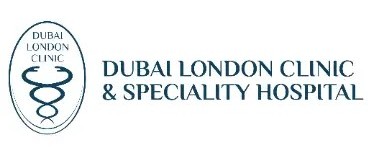A Surgeon Explains Deviated Septums & Sleep Apnea
From Blocked Airways to Restful Nights – Expert Insights on Deviated Septums & Sleep Apnea!
A deviated septum might sound like a minor nasal quirk, but for many, it’s the hidden culprit behind chronic breathing troubles and restless nights!
Nevertheless, can a deviated septum cause sleep apnea?
Well, experts say that sleep apnea could actually be one of the major side effects of a deviated septum. When the wall dividing your nasal passages is misaligned, it can restrict airflow, forcing your body to work harder just to breathe, especially during sleep. This not only disrupts rest but can also trigger a cascade of health issues over time.
Dr. Mustafa Kapadia, an experienced ENT specialist, offers comprehensive evaluation, advanced surgical correction, and ongoing support to help patients with deviated septum sleep apnea. He ensures that his patients breathe freely again, improve sleep quality, and reclaim their overall well-being.
In this insightful discussion, renowned ENT specialist Dr. Mustafa Kapadia sheds light on how a deviated septum impacts sleep, why it can lead to apnea, and the treatment options that can bring lasting relief.
What is a Deviated Septum?
The septum is the structure inside the nose that divides the nasal cavity into two halves, left and right. Its front section is composed of cartilage, while the rear portion consists of bone.
Ideally, this partition should be perfectly centered, but in some cases, the bone at the back can push the cartilage out of alignment. This misalignment is referred to as a deviated septum. The shift isn’t always limited to one side; in some instances, it can affect both, with the septum tilting one way at the front and bending in the opposite direction at the back.
What are the probable causes of a deviated septum?
A deviated septum can develop for a variety of reasons, often involving a combination of inherited traits, life experiences, and physical changes over time.
Congenital Causes
In some cases, the septum is already off-center at birth due to irregularities in nasal development during pregnancy. These congenital deviations may be subtle or more noticeable, and they can influence breathing patterns from an early age.

Injury or Trauma
Accidents, whether from sports, vehicle collisions, or even simple falls, can shift the septum out of place. Such injuries may cause sudden misalignment, resulting in noticeable changes in airflow and breathing comfort.
Genetic Influence
Certain nasal structures run in families. If close relatives have experienced septal deviations, you might be more likely to develop the condition due to inherited anatomical features.
What are the symptoms of a deviated septum?
Common signs that may indicate a deviated septum include:
- Persistent stuffiness in one or both nostrils
- Snoring or noisy breathing during sleep
- Recurring nosebleeds
- Headaches or facial pressure
- Difficulty getting enough airflow through the nose
- Favoring one side while sleeping to breathe more comfortably
- Repeated bouts of sinus infections
Deviated Septum and Sleep Apnea
What is Sleep Apnea?
Sleep apnea is a disorder in which a person’s breathing repeatedly pauses and restarts during sleep. The most common form, obstructive sleep apnea, occurs when the upper airway is blocked—often due to the throat muscles collapsing or the tongue or tonsils relaxing and falling backward into the airway.
When breathing stops, the body briefly rouses you so the airway muscles can tighten and reopen the passage. You then drift back to sleep almost immediately. Most individuals with sleep apnea are unaware of these frequent awakenings, sometimes occurring dozens or even hundreds of times a night, and simply wake up feeling unusually tired or unrested.

The Interlink Between Deviated Septum and Sleep Apnea
So, can a deviated septum really cause sleep apnea?
While a deviated septum isn’t a direct cause of sleep apnea, it can intensify its symptoms and make managing the condition more challenging. When the septum is misaligned, airflow through the nose becomes irregular, which can contribute to increased throat collapse during sleep. Restricted nasal breathing often leads to more mouth breathing, which in turn can heighten snoring and further disrupt sleep, for both the person affected and their partner.
Additionally, a deviated septum can make you more prone to nasal congestion and sinus infections, both of which can worsen sleep quality and aggravate sleep apnea, with the following phenomenon:
Persistent Nasal Congestion
A deviated septum can narrow one or both nasal passages, limiting airflow and causing ongoing congestion.
Recurring Sinus Infections
Misalignment of the septum can disrupt normal mucus drainage, creating an environment where mucus builds up, increasing the likelihood of sinus infections.
Breathing Difficulty on One Side
Unequal airflow between the nostrils is common, with one side feeling more blocked, making it harder to breathe evenly.
Snoring
Restricted airflow from a deviated septum can cause soft tissues in the throat to vibrate, leading to frequent snoring and disturbed sleep.
Also Read – Everything About Sleep Apnea Treatment
Deviated Septum Sleep Apnea – Diagnosis and Treatment
If you think a deviated septum might be interfering with your sleep, it’s important to seek evaluation from a qualified healthcare provider. Diagnosis generally starts with a physical examination of the nasal passages, and in some cases, imaging studies like a CT scan may be used for a clearer view.
Treatment depends on the severity of the deviation and the symptoms you’re experiencing.
Options may include:
- Medications to ease nasal congestion and reduce inflammation
- Nasal strips or dilators to improve airflow while sleeping
- Septoplasty, a surgical procedure to straighten the septum
Correcting a deviated septum can greatly enhance breathing during sleep, improve overall rest quality, and help prevent or lessen the effects of sleep apnea.
Surgical Intervention
If you’re dealing with deviated septum sleep apnea, our ENT expert may suggest a minor surgical procedure.
Septoplasty
Septoplasty is a surgical procedure that aims at straightening and repositioning a deviated septum to restore proper airflow through the nasal passages. For individuals with both a deviated septum and sleep apnea, this surgery can play a key role in improving breathing and reducing nighttime disruptions.
During this deviated septum surgery, the surgeon works inside the nasal cavity, carefully lifting the mucosal lining that covers the septum to access the underlying cartilage and bone. The misaligned portions are then reshaped or removed, and the lining is repositioned, leaving no visible external scars. The procedure is typically performed under local or general anesthesia, depending on the patient’s needs.
Other Treatment Options
For those with sleep apnea, correcting the septal deviation can help open the nasal airway, reduce nasal resistance, and decrease the likelihood of mouth breathing, factors that can contribute to snoring and airway collapse. While septoplasty may not cure sleep apnea on its own, it can significantly enhance the effectiveness of other treatments, such as CPAP therapy, by making nasal breathing easier and more comfortable.
Most patients experience improved breathing, reduced congestion, and better sleep quality within weeks of recovery. With proper post-operative care and follow-up, septoplasty offers a long-term solution for nasal obstruction and can be a valuable step toward managing sleep apnea symptoms effectively.
Want to know more about ‘Can a deviated septum cause sleep apnea?’
Our ENT Expert, Dr. Mustafa Kapadia, Leads You the Way!
If you’ve been wondering whether a deviated septum could be affecting your sleep and contributing to sleep apnea, the right guidance can make all the difference. With his extensive expertise in ENT care, Dr. Mustafa Kapadia provides accurate diagnosis, personalized treatment options, and long-term solutions to help you breathe easier and sleep better. Don’t let nasal obstruction or restless nights impact your health any longer.
Book a consultation with Dr. Kapadia today and take the first step toward clearer breathing and uninterrupted sleep.






